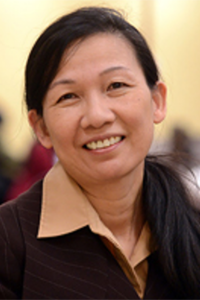Knowledge Organization Competencies and Skills Webinar presentations are published
06 September 2022
Knowledge Organization Competencies and Skills Webinar
Knowledge organization (KO) is critical to information and knowledge discovery. The associated competencies and skills play an important role in all information sectors and services. Yet, the broad discipline of KO, which includes subject analysis and access (SAA) as well as many other subdisciplines, lacks a shared, accessible, applicable description and as a list of requisite competencies that enable professionals and educators to train and teach it effectively. This also contributes to the poor recognition of KO competencies in the information profession in general.
This webinar focused on initiatives that seek to identify the necessary competencies and skills for the broader KO field. Our panel of KO experts discussed challenges and approaches in collecting, formulating, and sharing competencies and skills that are rooted in professional and educational needs and practices, and the panel explored how these competencies could be incorporated within an overall professional education framework.
This webinar was organized by Training and Education in Subject Access (TESA) working group of the IFLA section Subject Analysis and Access (IFLA SAA), in collaboration with colleagues from the IFLA Education and Training Section (SET), IFLA Building Strong LIS Education (BSLISE), International Society for Knowledge Organization (ISKO), and CILIP Metadata and Discovery Group (CILIP MDG).
Moderator: Athena Salaba
Athena Salaba is a Professor in the School of Information at Kent State University in Kent, Ohio, USA. She teaches in the areas of knowledge organization, resource description, and international librarinship. Her research areas include knowledge organization systems (KOS), critical cataloging, knowledge organization education, intercultural awareness, and user interactions with metadata information. She currently serves as the chair of the IFLA Subject Analysis and Access (SAA) section, ISKO Board of Directors member and treasurer, and the chair of the ALA Committee of Accreditation (COA).
Programme
DATE: Wednesday, 31 August 2022
TIME: 9 – 11 am PDT / 6 – 8 pm CEST
Aida Slavic: From IFLA LIS Guidelines 2022 to the competencies and skills for subject analysis and access
The working group Training and Education in Subject Access (TESA) was formed within the IFLA Subject Analysis and Access section to explore, capture, formulate and, as the final goal, compile competencies and skills in the area of knowledge organization that would take on board the needs of the international professional and educational community. In doing so TESA observes the work and liaises with fora and organizations concerned with LIS education and training. Taking on board the current IFLA Guidelines for Professional LIS Education Programmes, TESA’s own goal is to provide more accurate domain analysis and more specific guidelines with respect to our area of expertise.
Diane Rasmussen Pennington: Metadata competencies for all? The CILIP Metadata and Discovery Group’s response to the revised Professional Knowledge and Skills Base (PKSB)
In the UK, CILIP’s PKSB is the document that information professionals use for evaluating their desired and achieved skills, for writing Chartership applications, and for guiding CILIP-accredited LIS degrees. CILIP released a revised PKSB in autumn 2021. Diane will explore the new PKSB’s relationship to the range of skills that metadata specialists and, indeed, all information professionals need to know about this essential LIS domain.
Karen Snow: Core Competencies for Cataloging and Metadata Professional Librarians: Background, Uses, & Future
The American Library Association’s “Core Competencies for Cataloging and Metadata Professional Librarians” was released in 2017 to assist cataloging and metadata practitioners, administrators, LIS educators, and students in understanding the needed knowledge, skill, and behavioral competencies for most professional cataloging and metadata positions. This presentation by a member of the Cataloging Competencies Task Force will provide background on the document, explore ways it has been used, and ponder its future.
Marcia Zeng: Development and Implementation of Competency Index for Linked Data in Teaching and Training
Understanding linked data standards and practices has become a key requirement for information professionals, as the institutions continue to watch, plan, and implement linked data. The challenge of acquiring new competencies extends to the educators of the next generation of professionals and trainers who provide continuing professional development. To better prepare information professionals, a Competency Index for Linked Data of the knowledge, skills, and habits of mind necessary required for professional practice in the area of Linked Data was developed (95 competencies within six categories released in 2017) by the Linked Data for Professional Educators (LD4PE) project, funded by the Institute of Museum and Library Services (IMLS). This presentation will share the experience of development and implementation of the Competency Index for Linked Data as the base of the framework and learning outcomes for an educational course and professional training.
Panel Discussion
Speakers
 Aida Slavic is Editor-in-Chief of Universal Decimal Classification for the UDC Consortium (The Hague, Netherlands) and an adjunct Associate Professor in the Department of Information and Communication Sciences at the University of Zagreb, Croatia where she teaches knowledge organization and metadata courses. Aida holds a doctoral degree in library and information studies from University College London and Masters and a Bachelor degrees in library and information science from University of Zagreb. Her research interests are in the areas of knowledge organization, use of classification in resource discovery and modelling and formatting of controlled vocabularies. Aida is a member of the IFLA Building Stronger LIS Education (BSLISE) working group and team leader for the IFLA SAA working group Training and Education in Subject Access (TESA).
Aida Slavic is Editor-in-Chief of Universal Decimal Classification for the UDC Consortium (The Hague, Netherlands) and an adjunct Associate Professor in the Department of Information and Communication Sciences at the University of Zagreb, Croatia where she teaches knowledge organization and metadata courses. Aida holds a doctoral degree in library and information studies from University College London and Masters and a Bachelor degrees in library and information science from University of Zagreb. Her research interests are in the areas of knowledge organization, use of classification in resource discovery and modelling and formatting of controlled vocabularies. Aida is a member of the IFLA Building Stronger LIS Education (BSLISE) working group and team leader for the IFLA SAA working group Training and Education in Subject Access (TESA).
 Diane Rasmussen Pennington is a Senior Lecturer (Associate Professor) in Information Science at the University of Strathclyde in Glasgow, Scotland. She teaches courses in organization of knowledge, cataloging, and library systems. Her research areas include library linked data, tagging, classifying user engagement on social media, and ethical cataloging. She is the Chair of CILIP’s Metadata and Discovery Group as well as an Honorary Member and a Trustee of CILIP Scotland. She is a member of IFLA’s Standing Committee on Education and Training (SET), TESA, and the Building Strong Library and Information Science Education (BSLISE) working group. Personal webpage
Diane Rasmussen Pennington is a Senior Lecturer (Associate Professor) in Information Science at the University of Strathclyde in Glasgow, Scotland. She teaches courses in organization of knowledge, cataloging, and library systems. Her research areas include library linked data, tagging, classifying user engagement on social media, and ethical cataloging. She is the Chair of CILIP’s Metadata and Discovery Group as well as an Honorary Member and a Trustee of CILIP Scotland. She is a member of IFLA’s Standing Committee on Education and Training (SET), TESA, and the Building Strong Library and Information Science Education (BSLISE) working group. Personal webpage
 Karen Snow is a Professor and the Ph.D. Program Director in the School of Information Studies at Dominican University in River Forest, IL. She teaches face-to-face and online in the areas of cataloging, classification, and metadata. Her main areas of research interest are cataloging quality, ethics, and education. In addition to numerous journal articles and book chapters, she has published two books with Rowman & Littlefield: A Practical Guide to Library of Congress Classification (2017) and A Practical Guide to Library of Congress Subject Headings (2021).
Karen Snow is a Professor and the Ph.D. Program Director in the School of Information Studies at Dominican University in River Forest, IL. She teaches face-to-face and online in the areas of cataloging, classification, and metadata. Her main areas of research interest are cataloging quality, ethics, and education. In addition to numerous journal articles and book chapters, she has published two books with Rowman & Littlefield: A Practical Guide to Library of Congress Classification (2017) and A Practical Guide to Library of Congress Subject Headings (2021).
 Marcia Lei Zeng is a Professor of Information Science at Kent State University (USA). She holds a Ph.D. from the School of Computing and Information at the University of Pittsburgh (USA). Her research interests include knowledge organization systems (taxonomies, thesauri, ontologies, etc.), Linked Data, metadata, smart data and big data, database quality control, semantic technologies, and digital humanities. Dr. Zeng has authored over hundred research papers as well as six books. Her research projects have received funding from the NSF, IMLS, OCLC, Fulbright, and other organizations. She has chaired and served on committees, working groups, and executive boards for IFLA, SLA, ASIS&T, NISO, ISO, DCMI, ISKO, and W3C. Currently, she is chairing the Digital Humanities Curriculum Committee of the global iSchools organization and the DCMI Education Committee, while serving as a member of the DCMI Governing Board and ISKO Board of Directors. https://www.kent.edu/iSchool/marcia-lei-zeng-phd
Marcia Lei Zeng is a Professor of Information Science at Kent State University (USA). She holds a Ph.D. from the School of Computing and Information at the University of Pittsburgh (USA). Her research interests include knowledge organization systems (taxonomies, thesauri, ontologies, etc.), Linked Data, metadata, smart data and big data, database quality control, semantic technologies, and digital humanities. Dr. Zeng has authored over hundred research papers as well as six books. Her research projects have received funding from the NSF, IMLS, OCLC, Fulbright, and other organizations. She has chaired and served on committees, working groups, and executive boards for IFLA, SLA, ASIS&T, NISO, ISO, DCMI, ISKO, and W3C. Currently, she is chairing the Digital Humanities Curriculum Committee of the global iSchools organization and the DCMI Education Committee, while serving as a member of the DCMI Governing Board and ISKO Board of Directors. https://www.kent.edu/iSchool/marcia-lei-zeng-phd